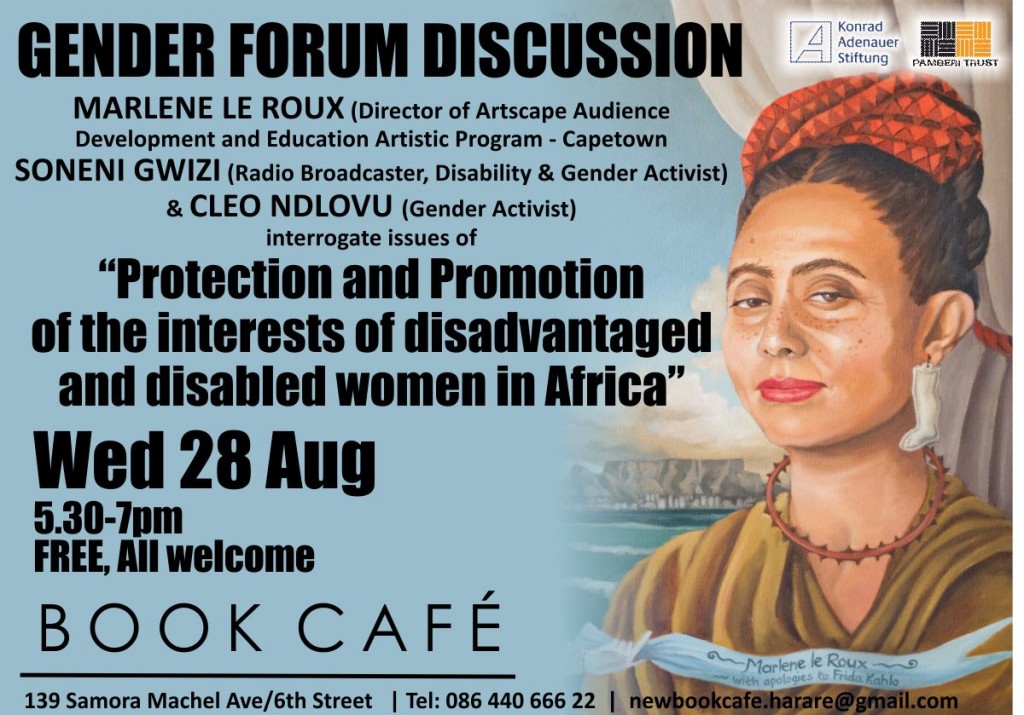“Life Through My Eyes”
Thursday, August 29th, 2013 by Marko PhiriThere are many issues that happen around us but which we remain clueless about as we get on with our lives.
It is already a hectic world, we often say, for anyone to take notice of the man standing next to you, but it is only when you hear narratives that weave personal stories that you count your blessings; wonder how unfair life can be; wonder why there are no social safety nets as once known; wonder why there is no functioning social services sector; wonder you hear often some countries being described as “welfare states.”
Indeed all this came pouring like a deluge when I attended the launch of a documentary produced by the Disability HIV and Aids Trust (DHAT) with support from the US Embassy in Harare and the US President’s Emergency Plan for Aids Relief (PEPFAR).
The documentary tells the story of visually impaired people living with HIV/Aids, and these very personal stories depict what remains a terrain not understood from local level right up to policy making echelons.
The documentary was shot in Harare where, like in many cities across the country, the visually impaired and disabled surviving as mendicants have become permanent features whose circumstances are not interrogated, whose lives are seen as not intersecting with those of able-bodied people.
One visually impaired couple living with HIV/Aids says even in health institutions, the personnel actually are puzzled how a blind person can contract HIV “as if we blind people are asexual beings.”
This itself was noted by the DHAT country coordinator Hamida Ismail-Mauto who said: “There is general misconception amongst health personnel that people with disabilities do not have sex and therefore do not require health services.”
That testimony is most telling in that it has implications on how disabled people’s health care needs are adequately addressed when prejudice can be found among professionals expected to attend to their needs and expected to know better.
It is no wonder then when the disabled decide not to visit health care centres because of the kind of treatment that awaits them.
A DHAT board member said while able-bodied people have abundant access to sexual health care knowledge where such things as condom use are even demonstrated to them, there remain no such thing for the visually impaired, placing them at the high-end risk of HIV/Aids.
Until someone says it, this is stuff you never think of, or imagine, yet it does open our eyes to daily realities of people with disabilities in this country live with.
It’s already a tough life for the able-bodied, imagine then an HIV+ disabled couple living in the streets and with no access to health care.
As the US Ambassador Bruce Wharton said in his remarks, more resources are needed for people living with disabilities and more interest required in the work being done by people living with different abilities.
Indeed we take some of these issues for granted and only until we see these experiences up close will we realise there is more to this country than clinging to office.










